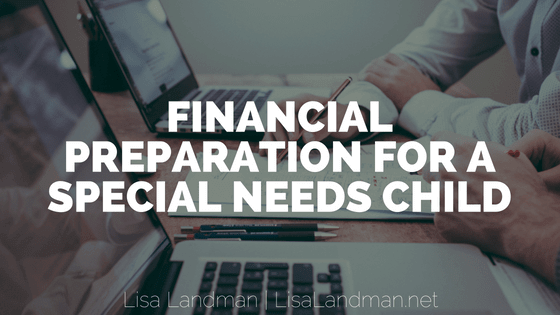
Preparing Your Special Needs Child for School
Getting ready for a new school year is stressful for most children, but it can be especially difficult for a child with special needs. Transitioning to a school schedule is a challenge, as is making sure a special-needs child receives the attention they need from the school staff. Fortunately, there are things that you can do as a parent to make the transition much more manageable.
Gather the Proper Documentation
Being a parent of a child in school means keeping track of lots of paperwork. You need to know about things such as school field trips, parent-teacher conferences, and anything else that will require your involvement. As a parent of a special-needs child, you will also have to gather documentation on your child’s needs for their school. This may include having an individualized education program, or IEP, for your child. Work closely with the school staff to review and implement this plan, and make sure that it is shared with the right staff members.
Set Goals
Most young children won’t see the “big picture” when it comes to their education, and that goes double for those with special needs. What they can understand better is short-term goals such as completing one assignment on time or even just being able to get ready for one school day. The goals you set will depend on your child and their capabilities, but try to keep them short-term and straightforward if you really want to see positive results.
Visit The School
Visiting a new school before your child attends is always a great idea, and it is particularly beneficial if your child has special needs. Many special-needs children thrive on structure and routine, and suddenly disrupting their current routine can cause a lot of problems. By taking them on a tour of their new school and allowing them to meet their teachers, you can help ease them into their new schedule when the new school year begins. It’s also best to schedule this tour when the previous school year is over or right before the next year is beginning since there won’t be as many staff members of students to overwhelm your child.
Be Patient
Above all else, the most important thing you can do when preparing a child for school is to be patient. Transitioning from a months-long period of no school to spending all day in classrooms is hard for any young child. There may be tantrums, meltdowns, and other setbacks during the transition, so be patient with your child. They will adjust to their new schedule on time and discover that going to school can be a positive experience.
Lisa Landman has a passion for helping others and has worked with special need adults throughout her career. Learn more about her professional work or check out her Twitter!

Financial Preparation for a Special Needs Child
Although it is never a fun topic to discuss, it is imperative that parents of special needs children take excellent care to plan for their child’s financial future. Here are a few of the most critical steps to take to ensure stability and security for your child:
Implement A Special Needs Trust
This is the single most crucial step that you can take to secure the financial future of your special needs child. By setting up this trust right away, you can ensure that the assets of your child will always be protected from taxation laws as well as from the loss of significant federal benefits such as Medicaid.
Appoint A Guardian
Always one of the most sensitive issues to discuss, be sure to consider who has the time and emotional strength needed to take on this responsibility. After you choose the guardian, be sure that they understand that this commitment will likely last well beyond your child turning 18.
Appoint A Trustee
Unlike a legal guardian, the legal trustee has the authority over the special needs trust. Most experts advise picking a trustee separate from the legal guardian to ensure that there is a built-in system of checks and balances.
Knowledge Is Power
Make it your mission to educate family members about the challenges of planning for the financial future of a special needs child. It is especially important that people understand that financial contributions must be placed in the child’s trust and not in their own name so that the child will always remain protected from tax laws.
Save For Every Rainy Day
As any parent of a special needs child knows, you can never have too much money socked away. Make a conscious effort to save as much as possible so that you can continue to provide for any unexpected medical expenses, educational costs, therapies, and more. Don’t make the mistake of assuming that insurance or public schooling will cover all of these costs.
Plan Ahead
There is a lot of uncertainty when thinking about the future of a special needs child. This is why it is vitally important to plan for your child’s independence and how that might look many years down the road.
Lisa Landman has a passion for helping others and has worked with special need adults throughout her career. Learn more about her professional work or check out her Twitter!

Special Needs Diagnosis: 3 Tips for Parents
When a child is diagnosed with a disability, life changes not just for that child but for the rest of the family as well. When a child receives a diagnosis such as autism, Down syndrome, or any severe developmental disorder, it’s normal to feel robbed. You may have expected your child to grow up, go to school, leave the house, and thrive like most other children. The realization that your child might not experience all of that can hurt. But that doesn’t mean the world has ended for your child. Although your child’s path may be different, you and your child still have lots of goals to achieve. Here are some tips to help you and your family thrive with special needs children.
1. Take Time to Grieve
This may not have been what you expected when you decided to raise a child. You have lost the future you had planned. It’s okay to grieve that loss. Take time to process your new future. Bottling up grief and frustration will just make things more challenging, as you deal with both your child and your own emotions. Giving yourself time to clear your mind will leave you better prepared to tackle your child’s future.
2. Educate Yourself
No two children with special needs are the same. What may be helpful to one family may be detrimental to another. Make sure you understand your child’s needs, and how to meet those needs. Read up on your child’s diagnosis. Talk to medically trained professionals and form a game plan. Knowing what your child’s needs are the first stepping to getting them what they need.
3. Build a Support Network
Not everyone in your life may be equipped to handle a child with special needs. Some people mean well but lack the understanding needed to help your family. That’s where forming a network comes in. Seek professionals who understand your child’s needs. Find other special needs families or support groups to vent or talk. Make sure your child has access to therapists or specialists. Your child will have both victories and setbacks. And knowing where to turn to cope with setbacks is essential. Don’t expect to take on all of your child’s issues alone. Get support for both your child and yourself.
About Lisa Landman
Lisa Landman earned her doctorate in psychology from Fordham University in 2005. One of the reasons why Lisa pursued psychology is due to her interest in helping others. Throughout her life, Lisa has spent time helping the most vulnerable populations of society which includes animals. She and her husband have rescued six different dogs over the years, and Lisa volunteers with the Special Olympics. Lisa particularly cares about adults with disabilities since they’re a population that tends to face increased vulnerability as they age.
Previously in her career, Lisa Landman worked as a Residential Coordinator at Bishop Grady Villas which describes itself as a “place where adults with disabilities are able to thrive and achieve their dreams” (Bishop Grady Villas Homepage). The best part of working at Bishop Grady was getting to know the residents. Lisa found each resident to be an amazing person with a huge heart, a caring attitude, and a wonderful personality. She particularly admired the residents’ attitudes toward life. Even with their daily struggles, they approached each day with optimism.
The most difficult aspect of working at Bishop Grady Villas was the lack of funding. A large amount of the residents are on the waitlist to receive benefits from the government which Lisa Landman finds unacceptable. If the residents can’t get government assistance, then their families must pay for them to live there. Sadly, there are many adults like the residents of Bishop Grady Villas who don’t have families to help them receive the sort of attention and care they need. This unfortunate reality is one of the reasons why Lisa is motivated to assist adults with disabilities as much as possible.

Lisa Landman served as an assistant basketball coach in early 2017. Helping the Bishop Grady residents during their weekly practices was a lot of fun. Seeing how much fun the residents have during games never failed to make Lisa smile. Lisa plans to assist with more Special Olympics events in the future. Since the Special Olympics is a nationwide organization, anyone can get involved. Helping adults with disabilities is a great way to spend one’s time, and Lisa encourages everyone she knows to get involved in some manner.
Professional Overview
Over the years Lisa Landman has worked in a variety of areas such as human resources and teaching. For eleven years she owned a fitness center where she was involved in nearly every aspect of the business. Presently, she’s working with Costech Lab as the Director of Operations. Lisa’s diverse work experience means that she can thrive in nearly any work situation. She looks forward to continuing to pursue entrepreneurial projects while helping others at the same time.
